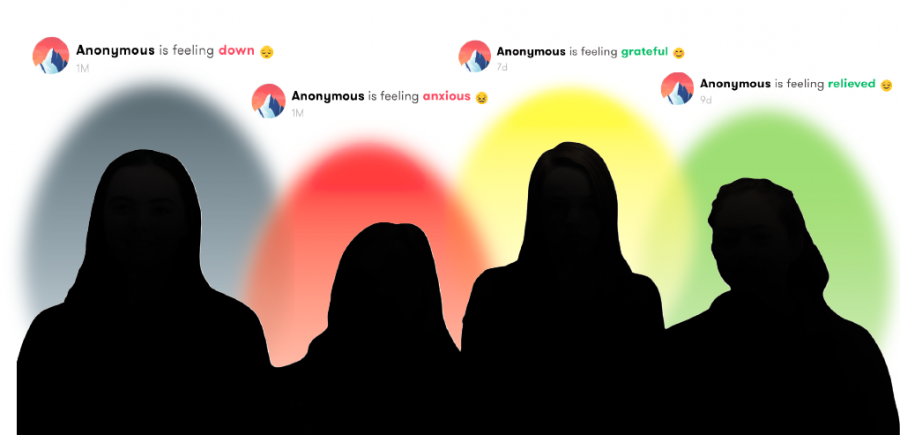New app to promote wellness
School partners with startup to focus on mental health, wellness through app
With the goal of bringing awareness to mental health, Convent & Stuart Hall has paired up with three developers to create and develop an app to help teens manage and maintain their mental wellness.
The Atlas team — made up of co-founders Max Savage, Justin Lai and Dipa Halder — and Convent & Stuart Hall won a $100 thousand grant from The Edward E. Ford Foundation last November to “augment emotional intelligence through app-based technology,” according to the foundation’s website.
Atlas’ primary goal is to help all users understand that everyone has a mental health and clarify key misconceptions about mental wellness, according to Savage.
“Mental health is a spectrum that ranges from mental illness on the low side, to mental fortitude on the high side,” Savage said. “When a lot of people think of mental health they’ll think of depression, anxiety and eating disorders, where that’s really just a subsection of the larger spectrum.”
The app — which is being exclusively prototyped within the Convent & Stuart Hall community — has a feed in which users can post messages that include their mood, respond to polls, and like or comment on other users’ posts.
“Atlas is a good way to express myself, understand how the rest of the community is feeling and relate to others,” senior Darrean Loy, who is beta testing the app, said. “It really does help — especially when I’m feeling very frustrated or anxious — to just put it into words, even if it’s anonymous or if nobody responds.”
Due to increasing depression, anxiety and suicide rates among teens nationally, the need for a mental health and wellness platform such as Atlas was apparent, according to Annie Egan, K-12 Director of Student Support.
“Something was obviously missing,” Egan said. “There have been a lot of curricula that have been put into place for various schools around wellness and stress management, but it’s clearly not working because the numbers are not any lower.”
Just over 19 percent of female young adults experience depression, while the national suicide rate per 100,000 young adults was 5.4 for females aged 15-24 and 20.1 for males aged 15-24 in 2016, according to the National Institute of Mental Health.
Only 40 percent of adolescents with depression nationally receive treatment.
“Unfortunately, our society as a whole is not equipped with the knowledge to understand what’s happening with our children and with the knowledge to be able to consistently support the wellbeing of our children and our own adult selves,” Savage said. “That’s what the big need is.”
The Atlas team conducted design thinking workshops in two junior Theory of Knowledge classes last year before building their product.
“At the end of day, the platform that we’re building is going to be used by students, teenagers specifically,” Savage said. “We really wanted to make sure that we did our research and had conversations and design thinking workshops to really understand student needs across the board.”
The Atlas founders and a selection of Convent & Stuart Hall high school students and faculty have held bi-weekly meetings since then to present new ideas and provide feedback, according to sophomore Sadie Kahn.
“Atlas is going to be really helpful in bringing the community together,” Kahn, who attends the meetings, said. “When you’re having a bad day, people can direct message you and be like ‘Oh, I feel this, too. You’re not alone.’”
The app is currently in a closed beta test and is a work in progress. Only students in the selected TOK classes and students who attend the Atlas product meetings currently have access to the app.
“Figuring out how to structure the application moving forward in order to make sure that, at the end of the day, it does serve a larger purpose of promoting everybody’s mental well being is the next step,” Savage said. “Our primary focus is making sure that we build a platform that ultimately serves the emotional and mental well being of the school community here at Convent & Stuart Hall.”
This story was updated on Nov. 15 to correct the suicide statistics among young adults. The story previously stated the figures as suicide rates, but has since been clarified as the rates out of every 100,000 young adults.








